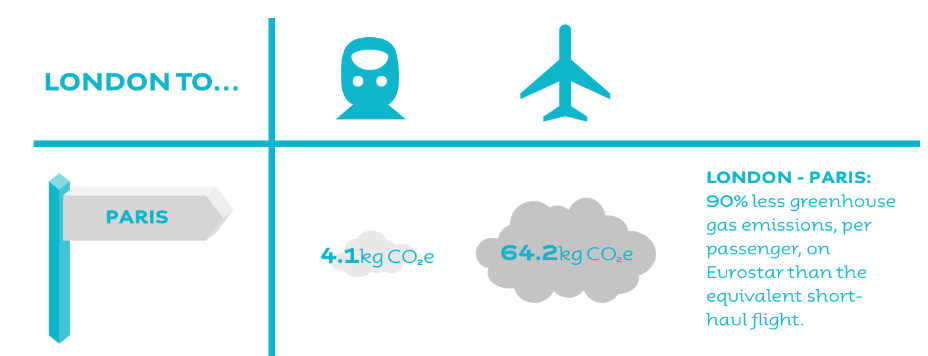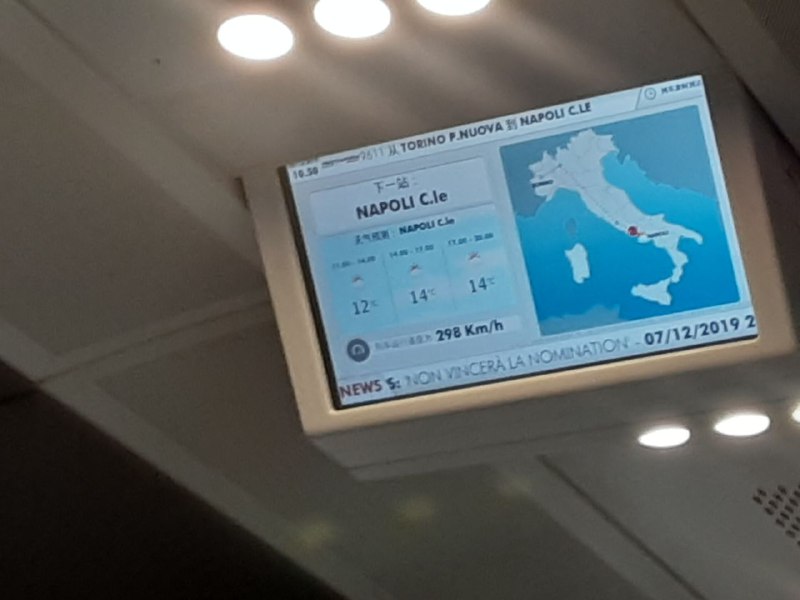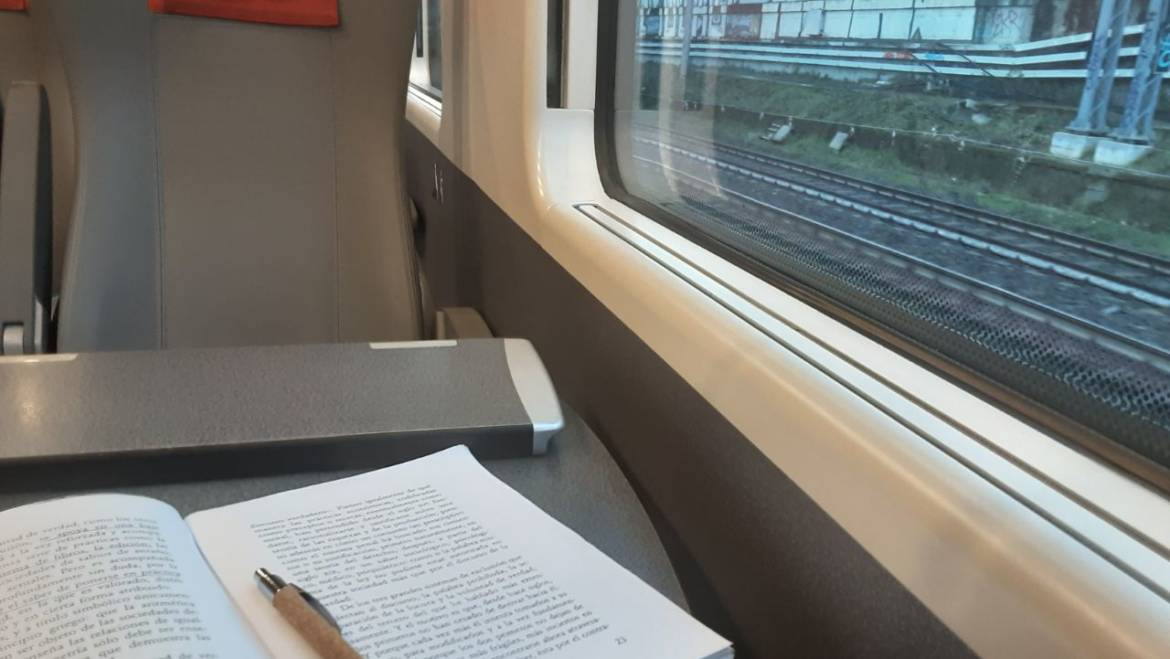Flying is a convenient, affordable, safe, and quick way to travel across countries, making it is the most popular mean of transportation for academics, especially to attend international conferences and other academic events. However, flying is one of the most carbon-intense activities in academia. On July 2019, the Guardian[1] published an article raising awareness on the impact of flying, providing a tool to calculate the impact of flying, even for short-distance trips, and its comparison with the average annual carbon budget per person from all the countries in the world.
The comparison is stunning, for example, one return flight from London to Rome is already more than a quarter tonne of CO2 in the atmosphere and this impact is larger than the yearly average emission per person of 19 countries, all of them located in Africa. The calculator shows how flying is not just an issue of environmental impact, but of social justice. Even train companies such as Eurostar promote their train journey as reducing carbon emissions by up to 90%[2]. Ferries on the other hand, are still more sustainable than planes according to some research, while cruises are the most pollutant means of transportation, but there is an ongoing debate on this issue [3].

Comparison of the carbon footprint of a travel from London to Paris by plane and by using eurostar. Source: https://www.eurostar-treadlightly.com/en/environment.php
There is a growing awareness, especially in the global north, on the negative impact of flying, that has crystallized in the term “flygskam,” or flight shame. This term was coined in 2017, as the Swedish singer Stafan Lindberg pledged to give up flying to reduce his carbon footprint. Its popularity heightened as the climate activist Greta Thunberg crossed the Atlantic to New York by yacht, to make a statement on carbon emissions[4]. This behavioural change is slowly becoming more mainstream, as German airports show a steady decline in passengers taking domestic flights and the German rail firm Deutsche Bahn AG is reporting record passenger numbers[5]. Although we are still far from a Carbon neutral society, part of the general public is willing to give up the comfort and convenience of the plane to reduce their carbon footprint and mitigate climate change.
The flying less movement and the fly shame concept are also calling to academics to change their behaviour as well, especially those academics that work in the issues related to sustainability, such as circular economy, or climate change. There are international campaigns, such as the flyingless[6], that are also promoting a petition at change.org[7] to greatly reduce flying. This call is directly addressed to universities and academic consortiums such as ReTraCE, that are working on how to build a circular future. The petitioners ask us to give examples and practice what we preach in our research, reducing our flights and choosing new means of transportation, or even organize virtual events that do not require traveling[8].

I started reducing my carbon budget and explore new ways to travel to ReTraCE network events, and for trips under 1,000km, it was easy to swap the plane for a train. When the ReTraCE Summer School took place in Sheffield (UK) in June 2019, I travelled there by train from Brussels, a 650 km journey that took one hour by plane, and that became an almost 6 hours train trip. The new challenge for me was to travel to the ReTraCE Winter School from Exeter, where I am doing my secondment, to Naples. This represented a 2,300 km journey that took up to 23h by train! Additionally, on the way back from Naples to my home in La Granadella, a village not far from Barcelona, became a 26 hour journey that included one train, one boat and one bus, instead of a 2 hour plane and a 2 hour bus.
What is my takeback from this experience? Swapping the plane by alternative means of transportation may be a challenge at the beginning since it is a time demanding commitment. We cannot always afford to spend 26 hours for a trip when our jobs and families demand us to be at home. Also, financially speaking, the plane tends to be often a winner. It would not be strange to find deals from London to Naples from 10 to 15 euros. However, travelling by train is not such a bad option. Trains are wider and more comfortable than planes, they are equipped with WiFi, power sockets and small tables, allowing you to use this time to work or be productive in other ways. Trains are more pleasant since their cafés are better equipped and luggage restrictions are less strict than planes. And last but not least, their carbon emissions are much lower, and some companies even claim to make carbon-neutral journeys since they purchase all their electricity from renewable sources, making the train the most sustainable option on the table.

Boats can also be an alternative to planes, since they are comfortable and the views of the sea are an added plus. However, mine between Rome to Barcelona didn’t have any Wi-Fi available, and although they are comfortable, if you suffer from sea sickness, and you experience bad weather (as I did), the journey may not be as pleasant nor as productive as the train. Also, the information on their actual carbon footprint is not easily available, making their sustainability claim unclear. This footprint can change a lot depending on what kind of ship operates on the route.
In conclusion, swapping the plane by a train is an option that we all should seriously consider. They are comfortable, environmentally friendly, planning the journey with time may make it affordable, and although they are slower than planes, they allow you to bring your work in the train, so reorganizing yourself may compensate for this time loss. The trip by train is more enjoyable as well since changing trains in some cities allow you to have quality beaks in places like Paris or London. Also, public authorities should take the train system more seriously, informing on the carbon footprint of each of the options, creating international platforms to compare routes and prices, giving more discounts, and providing facilities as lockers for your luggage in train stations where people are likely to change trains.
[1] https://www.theguardian.com/environment/ng-interactive/2019/jul/19/carbon-calculator-how-taking-one-flight-emits-as-much-as-many-people-do-in-a-year
[2] https://www.eurostar.com/rw-en/carbon-footprint
[3] https://www.bbc.com/news/science-environment-49349566
[4] https://www.cbsnews.com/news/flight-shame-could-hurt-airlines-as-travelers-shun-air-travel/
[5] https://www.bloomberg.com/news/articles/2019-12-19/german-air-travel-slump-points-to-spread-of-flight-shame
[6] https://academicflyingblog.wordpress.com
[7] https://www.change.org/p/universities-and-professional-associations-call-on-universities-and-professional-associations-to-greatly-reduce-flying?recruiter=294645973&utm_source=share_petition&utm_medium=copylink
[8] https://www.nature.com/articles/d41586-019-03899-1

